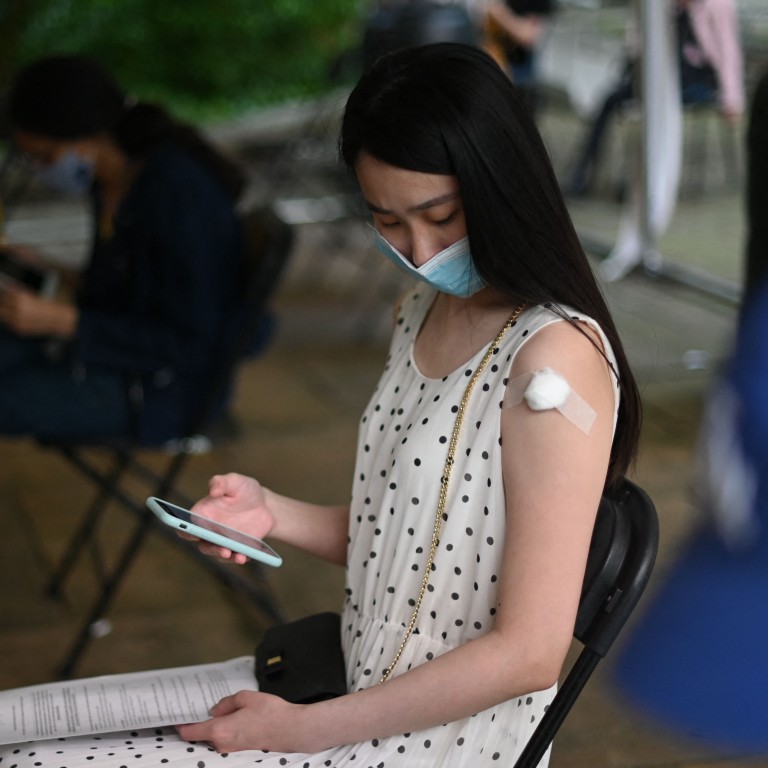
Coronavirus: G7 plans 1 billion extra vaccine shots to end pandemic in 2022
- G7 draft communique says leaders will make vaccine pledge at UK summit
- US plans to buy 500 million doses of Pfizer shots to share internationally
As Biden and other G7 leaders gathered for the start of their summit in the UK, their staff were putting together a document that outlines a plan to end the Covid-19 pandemic by December 2022. At the summit in Cornwall, the presidents and prime ministers will pledge to deliver at least 1 billion extra doses of vaccines over the next year to help cover 80 per cent of the world’s adult population, according to a draft communique seen by Bloomberg News.
The US government will buy about 200 million doses this year to distribute through Covax, the World Health Organization-backed initiative aimed at securing an equitable global distribution of the vaccine, and about 300 million doses in the first half of next year, said a person familiar with the matter.
The vaccines will go to 92 lower-income countries and the African Union, the person said. Biden was expected to announce that plan on Thursday in remarks before the summit gets under way.
The move comes as the United States faces pressure to do more about the global vaccine shortage, with rich countries having bought up the lion’s share of early supplies and the pandemic still raging across much of the world.
The United States itself has fully vaccinated more than half its entire population, and the infection rate has plummeted. Some states have even resorted to perks like million-dollar lotteries or free beers to encourage uptake of the country’s ample vaccine supply.
Last week, Biden announced the shipment of a first batch of six million doses to be distributed in Central America and the Caribbean through the global Covax programme, while others will be sent directly from Washington to countries such as Mexico.
In wealthy countries such as in Europe, vaccine roll-outs were allowing the return of activities unthinkable just a few months ago.
In France, that included sipping a drink inside a cafe, allowed on Wednesday for the first time in months.
With the easing of the curfew in France, venues were not only opening up inside, they’re open later outdoors too – an extra two hours to 11pm.
India’s Serum Institute is at the centre of global vaccine shortage
Belgium also relaxed restrictions, allowing cafes and restaurants to serve indoors, while mask-wearing rules were eased in Brussels.
Europe was continuing to see infection spikes in some places – Portugal, for instance, delayed Lisbon’s post-lockdown reopening on Wednesday.
But the bloc’s accelerating vaccination campaign has fuelled hopes of a return to normality. Almost half of all adults in the EU have received at least one shot, with almost 26 per cent fully vaccinated.
But for billions of the world’s poor there is still no sign of a vaccine in sight, with the global death toll at more than 3.7 million and many nations still struggling to contain outbreaks.
India on Thursday reported a record daily rise of 6,148 deaths from Covid-19 over the past 24 hours, and 94,052 new daily coronavirus cases.
The country’s total Covid-19 caseload now stands at 29.2 million, while total fatalities are at 359,676, according to data from the health ministry.
Delta variant has 60 per cent transmission edge over Alpha, UK expert says
Nepal, where barely two per cent of the population is fully vaccinated, resumed shots on Tuesday after a million more Sinopharm doses arrived from China, the only country so far to respond to its appeals for help.
Sri Lanka has also been aggressively rolling out China’s Sinopharm jab after receiving two million doses in the past week, opening its programme to pregnant women on Wednesday.
In a further sign that the fight against the pandemic is far from over, Russia on Wednesday warned of a spike in new cases that would force it to reopen mothballed field hospitals.
Bloomberg and Agence France-Presse
